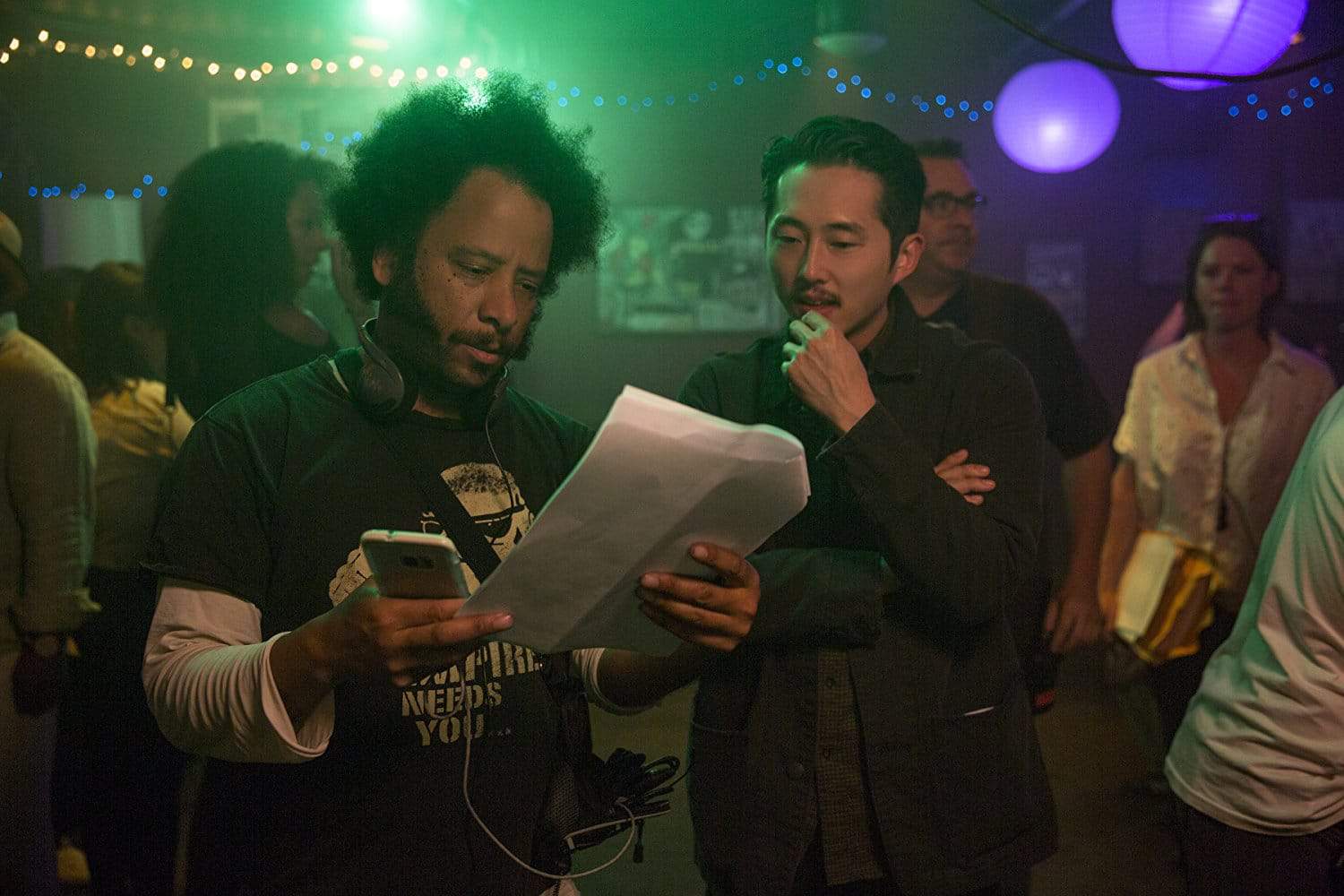
From his musical exploits with The Coup to ‘Sorry to Bother You,’ prepare yourself for Boots Riley’s emotionally-charged activist art.
In this day and age, activism has reached an unprecedented level of mainstream consciousness and saturation in all aspects of the media. We read about it in the news, see campaigns on social media, and we’ve even seen some of the effects of political consciousness in the entertainment we consume.
All art is political, and the channels through which these views are disseminated should be continually diversified. Films like Get Out and Black Panther made waves in recent years due to the vital messages embedded in their narratives paired with a heavy dose of mainstream appeal. They are fundamentally different movies – as disparate as a low-budget horror movie and a Marvel tentpole will always be – but they come from the same spirit of propelling the unique voices of the marginalized to the forefront.
Boots Riley’s Sorry to Bother You absolutely fits into this mold, too, in its own vibrantly disruptive way, although that also feels like a serious understatement. Here we have the debut feature film of the man best known as the frontman of political rap group The Coup, so what else could we have expected?
A featurette from Sorry to Bother You distributor Annapurna Pictures, which you can watch below, tilts the spotlight towards the filmmaker (and “teacher, activist, musician, and author”). Although it’s a brief clip, we’re treated to a definitive taste of what Riley’s ambitious vision for Sorry to Bother You is going to be like.
The cast and crew of Sorry to Bother You, which includes Lakeith Stanfield, Tessa Thompson, and Armie Hammer, all praise the multiplicities of Riley’s art. In the clip, Thompson and Hammer particularly list it as a driving force behind their involvement in the movie. Riley’s penchant for strong political sentiments clearly does not forego a commitment to zany artistry in the slightest either.
Riley’s art has come in different shapes and sizes throughout his career despite always arrives at the same place: bringing power to the people. We are first introduced to his revolutionary voice through The Coup’s musical oeuvre. Across six full-length albums and two EPs, The Coup narrate and critique anything from romance to racism, police brutality to American capitalism.
The band is not just a soapbox from which to preach, though, because Riley and his fellow musicians have been focused on making every tune a banger to begin with. Through slick rhymes and darkly satirical lyrics, The Coup has proved that politics need not be boring or sterile.
Speaking to Rolling Stone in 2012 about the album “Sorry to Bother You” – which was inspired by the screenplay to the new movie of the same name – Riley described his ethos about so-called “political music,” which is a term he actually proclaimed to dislike. He stated:
“I don’t think [getting people involved in activism is] as mechanical as that. The problem with people not getting involved is not them being apathetic. It has to do with people’s understanding whether or not things can change, whether they feel hopeful or not, powerful enough to do it. My outlook makes me feel optimistic about the future, so I’m gonna make music that has to do with the way I feel. For me, that’s music I can dance to.”
That kind of sentiment finds its way into the fabric of the onscreen version of Sorry to Bother You. Riley’s film stands out due in part to absurdist elements that leap from the screen, even in trailer footage alone. According to IndieWire, Riley drew inspiration from subversive images, with British director Lindsay Anderson’s 1973 fantasy comedy O Lucky Man being a prime reference point. As Riley slowly navigated Hollywood in attempts to get Sorry to Bother You made, mentors like David Gordon Green called him a “crazy motherfucker” when he shared sample clips from the film’s workshop stage.
And indeed, Riley asks ambitious questions about performativity and success in his film and wouldn’t settle for anything else than a complete and honest portrayal of every aspect of the story. Humor had to be anchored by characters and their relationships, which then had to be propped up by the reality of their circumstances — marginalized or otherwise. The wacky images of Sorry to Bother You find power in the layered nature of the narrative.
As Riley recently told Pitchfork in rather succinct terms, he didn’t make Sorry to Bother You only to “[say] something cute” and vapid. Instead, the heart drives the artistry. He echoed a similar idea in the aforementioned IndieWire interview, too, by questioning the usefulness of allegory as a gateway to radical change if a film only tells narratives in broad strokes.
And that’s what it means to meet Boots Riley. You can find glorious fun in empowerment and be cheeky about political engagement, but it has to be real, it has to be pointed, and it has to help someone. Touted by FSR’s John DiLillo as “one of the best movies of the year,” Sorry to Bother You sports an undeniable sense of visual adventurism and experimentation that continues to bust open doors for activist conversation in film. And it all starts with the man himself.
Sorry to Bother You hits cinemas on July 6th.
Related Topics: Sorry to Bother You

